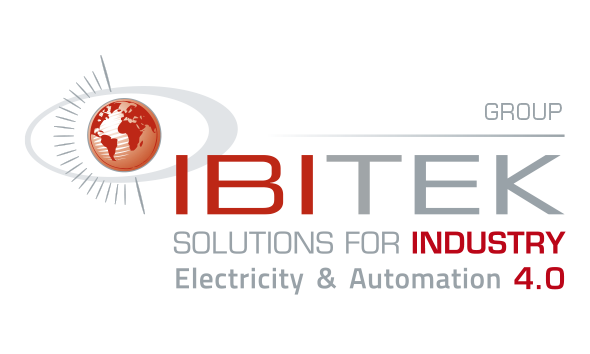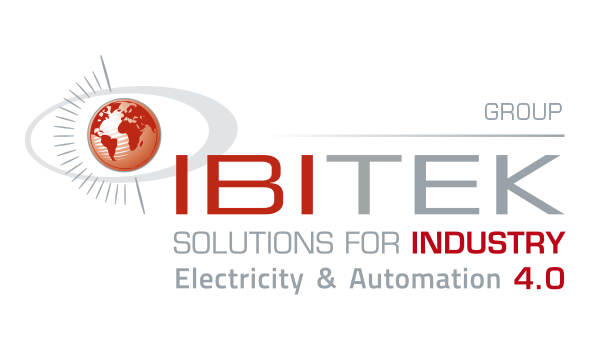Making the most of data is a major challenge for businesses. It is a process that encompasses the collection, processing and analysis of data to optimise its use. As the amount of data increases, it is essential to know how to make the most of it. When properly collected, archived and exploited, this data can radically transform industrial operations. This approach offers a new lever for growth by enabling proprietary data to be enriched. However, implementing it requires a certain data culture.
Understanding the value of industrial data
Data enhancement is a strategic approach that aims to make the most of all the data available in an organisation. The aim is to transform this data into useful information to influence decisions, optimise processes and generate value. The aim is to improve operational efficiency, reduce costs and increase productivity.
Adding value to data is based on several key elements:
Data management: this involves guaranteeing data quality, security and compliance.
Data sharing: it is essential to facilitate access to data so that it can be used throughout the organisation.
Data analysis: this process enables patterns and insights to be discovered in the data.
For plant managers and CIOs, understanding and implementing a data monetisation strategy is essential.
It is also crucial to have a data culture within the organisation. This means that all stakeholders understand the value of data and know how to use it to generate value.
Definition of data valorisation
Data valorisation is the strategic exploitation of collected data. It is a dynamic process that monetises information by transforming raw data into relevant, usable insights. This can be done via internal uses to optimise the company’s activity, or by reselling data to third parties. The aim is to generate significant added value, whether in terms of revenue, operational efficiency or innovation.
Adding value to data involves implementing various methods and techniques, in particular :
Data management, which aims to ensure data quality, security and accessibility.
Data sharing, which facilitates collaboration and innovation.
Data analysis, to extract valuable information and relevant trends.
It’s crucial to note that making the most of data requires a strategic vision, as well as the right organisation, to treat data as an asset in its own right.
Collecting industrial data
Data collection is the first crucial stage in data enhancement. It requires tools capable of collecting large quantities of information from a variety of sources, such as machines, sensors and management systems. IBIProd excels in this task by offering a robust platform that captures data in real time, ensuring that decision-makers have up-to-date information to manage their operations effectively.
IBIProd’s MES software is designed to interface with all connected devices and systems within the plant, facilitating consistent and comprehensive data collection. This integrated approach ensures that all relevant data is collected without interruption or loss of information. In addition, IBIProd enables plant and IT managers to monitor ongoing processes and quickly identify areas requiring adjustment or improvement.
Industrial data archiving and security
Once the data has been collected, secure archiving becomes a priority. Effective archiving ensures that data is not only stored securely, but also organised in a way that facilitates future access and analysis. Ibiprod offers an industrial archiving solution tailored to the specific needs of each plant. This solution, developed using Ignition, offers great flexibility and can manage a large volume of data, ensuring data security and availability for optimal use.
Data security is a major concern, especially in an industrial context where sensitive information must be protected against unauthorised access and cyber attacks. IBIProd meets this challenge by incorporating robust security measures, ensuring that data remains confidential and intact. In addition, Ibiprod’s ability to automate data archiving reduces the risk of human error, ensuring greater reliability in data management.
The impact of data enhancement on businesses
Making the most of data has a significant impact on businesses. Firstly, it fosters innovation. By making effective use of their data, businesses can discover new ideas, improve their products and services, and even create new offerings. Secondly, it can improve productivity. Indeed, data analysis can help identify inefficiencies, which can lead to process improvements and increased productivity.
Thirdly, it can increase business value. Some companies that have audited the quality of their data have discovered that their data assets can have an impact on their valuation. Finally, leveraging data can help companies achieve a significant return on investment. By adding value to their data, businesses can generate a high return on investment, turning their data into a veritable “digital oil”.
Why value your data?
The challenges of leveraging data
Making the most of data raises a number of strategic issues.
- Firstly, there is the issue of data control. Companies need to be able to control their data in order to extract maximum value from it.
- Then there is the issue of data culture. This means instilling an understanding of the value of data and how to use it effectively at all levels of the organisation.
- Finally, there is the issue of compliance and data security. Companies must comply with regulations on the protection of personal data and ensure the security of the data they handle.
These issues are not mutually exclusive and need to be addressed in a coherent way if data enhancement is to be successful.
The benefits of data exploitation for businesses
Making the most of data has a number of benefits for businesses, including:
- Improved decision-making: Data analysis helps to make more informed, fact-based decisions, which can lead to better performance.
- Optimised operations: Companies can use data to identify inefficiencies in their processes, which can help reduce costs and improve productivity.
- Strengthening customer relationships: Data can help to understand customer preferences and personalise offers, which can increase customer satisfaction and loyalty.
- Development of new revenue opportunities: Companies can add value to their data by selling it or offering new data-driven services.
These benefits are all the more important in the current climate, where data is seen as the new ‘gold’ for businesses. However, to reap the benefits, companies need to overcome a number of challenges, particularly in terms of data management, security and privacy.
Risks and challenges of leveraging data
Although data enhancement offers many advantages, it is not without its risks and challenges. Firstly, data quality is a major concern. Poorly managed or incorrect data can lead to ill-informed decisions, adversely affecting business performance. Secondly, data security is a constant challenge. Data breaches can not only lead to financial penalties, but can also damage a company’s reputation. Finally, the ethics of data raise new questions, particularly in terms of respect for privacy and the appropriate use of data.
How can data be put to good use?
There are a number of key elements that need to be taken into account if data is to be put to good use.
Firstly, it is crucial to clearly identify the objectives of data enhancement. These objectives must be aligned with the company’s overall strategy.
Secondly, understanding and mastering data is essential. This means knowing exactly what types of data are available, where they come from, their quality and their relevance to the objectives set.
Establishing effective data governance is also a determining factor. This includes defining roles and responsibilities, establishing data management rules and ensuring that they are respected.
Finally, the choice of analysis tools and methods is crucial. These must be adapted to the specific needs of the business and the nature of the data to be exploited.
Exploiting and analysing data with IBIProd
The efficient use of industrial data is a key factor in the continuous improvement of production processes. Ibiprod stands out in this field by offering advanced data analysis and visualisation tools. This capability enables plant and IT managers to transform raw data into useful information for strategic decision-making.
With IBIProd, users can monitor production performance in real time and quickly identify potential bottlenecks, inefficiencies or failures. This real-time monitoring is essential for maintaining optimum production and reducing downtime. In addition, Ibiprod facilitates the implementation of continuous improvement methods by providing detailed reports and dynamic dashboards. These tools help to evaluate the effectiveness of changes made and to plan future strategies.
Ibiprod’s integration with other systems, such as ERP, enhances its ability to provide a complete view of production. By centralising data from different sources, IBIProd enables more in-depth analysis and better alignment of production objectives with the company’s strategic goals. This integration also ensures that all decisions taken are based on reliable and up-to-date data, which is essential for long-term success.
Advantages and benefits of using IBIProd
Adopting IBIProd in a plant offers a multitude of tangible benefits for plant managers and IT managers. Firstly, optimisation of resources is one of the major benefits. By using data to guide decisions, IBIProd helps to allocate resources more efficiently, resulting in increased productivity and reduced costs.
Another significant benefit is the ability to anticipate and prevent problems before they occur. With its real-time monitoring and alert system, Ibiprod enables proactive intervention to maintain production continuity. In addition, the dematerialisation of documents via IBIProd improves the accessibility and management of information, resulting in greater efficiency and improved regulatory compliance.
Finally, improved traceability is another key benefit. Ibiprod accurately records all actions and transactions, improving product and process traceability. This functionality is essential for meeting quality and compliance requirements in the manufacturing industry. In short, IBIProd is not just a tool for data collection and analysis, but a strategic partner that contributes to the overall optimisation of industrial operations.
These two sections complete the exploration of IBIProd’s features and benefits, highlighting how this solution can transform industrial data management into a strategic asset for plant managers and IT leaders.










